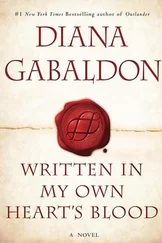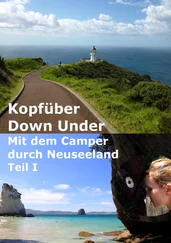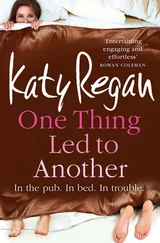Jamie is astonished. “You’re walking.…”
“I wanted … a surprise …” she manages to say, breathing hard from the exertion.
“You pulled it off, didn’t you? Wow, you’re walking!”
“A little …”
“But a little leads to a lot, right, Nadia?”
“We think so.”
“I want …”—Celeste struggles for the word and then when she finds it, she grins at him—“a … reward.”
“And what would that be?”
“The ocean … I want … to see … the ocean.”
Jamie looks at Nadia for permission. “Could I take her?”
And before Nadia can answer, Celeste says, “I say yes!”
THE REHAB FACILITY HAS BEAUTIFUL GROUNDS, carefully planted and landscaped with level walkways, fountains with benches around them, but Celeste isn’t interested. Only the ocean will do, and so Jamie has to push her chair past the manicured lawns and the curved flower beds bursting on this late summer’s day with cosmos and zinnias and salvia in shades of purple. They cross the main driveway and come out onto the winding road that brings visitors to the hospital and then continues on.
Jamie pushes Celeste along the shoulder of the road, being careful to look for cars, conscious that her safety is in his hands, but she seems supremely unconcerned. She puts her head back and takes in the feel of the sun on her skin. Her eyes are closed and she is smiling.
“I smell it,” she says to him. And so does he. The ocean.
Carefully, afraid that he might be jostling her newly knit bones too much, he turns off the road and cuts across the yellowing late summer grass of an empty field. He knows that if he can get her to the edge of it, she will be able to overlook the ocean. She will be able to see for miles.
She doesn’t open her eyes. She waits. He doesn’t talk, because he’s concentrating on the uneven surface of the dirt, attempting to pick out the least bumpy path. And then he stops the chair, sets the two hand brakes, and kneels down beside her so that he can see what she will be seeing. And yes, the view is perfect — Swami’s Beach is in front of them. The sun is on the water. The waves are shallow and rhythmic, running up the sand in frilly white ruffles. The horizon line goes on forever, blending with the bluest sky of the summer.
“Here,” he says to her. And she opens her eyes. It’s all there. All in front of her. All that she has longed for these many arduous months.
“Oh, Jamie,” she says, “thank you.”
And she takes his hand and brings it to her and holds it with both of her hands. He lets her. He wants her to.
“Now,” she says, “I can get well.”
ON A BRIGHT BLUE JULY MORNING, LUCIA opened her eyes with the thought already formed in her brain —Is this the day Maggie starts talking? She had awoken with this question every day for the past thirty-nine days. And every day the answer had been no, not today.
What she hoped for, what the doctor told her not to expect, was that one day, suddenly, her daughter would start chattering again, word would tumble after word, a cascade of sounds and sentences and laughter where now there was only silence and mystery.
Dr. Greenstein took Lucia aside one day and prepared her for whispers, maybe a word at a time, maybe then followed by more silence. “Be alert,” the doctor said, “for the occasional word spoken so softly you might miss it.” But Lucia didn’t want that, one word spoken occasionally. She wanted her child back, her spontaneous, silly, talkative dream of a child.
It had started slowly. On the early Thursday morning, beginning of June, that Lucia began to pack whatever clothes she could fit into two duffel bags, she looked up to see Maggie in her pajamas, thumb in her mouth, black hair chaotic from the sleep that still clung to her like a mist, hugging the doorway of the bedroom.
“Oh, sweetheart …” Lucia said and then stopped, fumbling for what to say next. She knew it had to be the absolute right thing, but she hadn’t expected Maggie to awaken so early and she wasn’t prepared.
Maggie’s eyes scanned the chaos on the bed — heaps of clothing jumbled on top of each other, the open duffel bags.
“Mommy, where are we going?”
Lucia was desperate to believe that they were going on to something better, but she couldn’t have described exactly what that was, so, as she sat down on the bed and reached out for her daughter, Lucia was as literal as she could be. She hoped it would ground them both.
“We’re going to go live by the beach,” Lucia said as her daughter climbed into her lap, “in a place called Ocean Park. We went there once in the summer, to the pier where they have rides and cotton candy. Do you remember?”
Maggie took a minute to consider. She took all questions seriously. Did she remember? “How old was I?”
“Let me see, you were very little. Maybe not quite two.”
“Oh, Mommy,” Maggie said, immediately relieved, “that’s too little to remember. No one could.”
Lucia smiled. “Probably not.” She understood Maggie didn’t like to fail at anything, including remembering things.
“You’re being silly,” Maggie said as she snuggled deeper into Lucia’s arms.
“It wouldn’t be the first time.”
“Did we have fun? Tell me about it. I want to remember.”
And so Lucia described the merry-go-round and the white horse with jewels in his tangled mane that Maggie insisted on riding over and over, Richard at her side, holding her on, but Lucia left that part of the story out.
While her mother talked, Maggie took an inventory of the clothing spread across the bed. She saw her shorts and T-shirts, her sandals and tennis shoes, her mother’s jeans and sweatshirt hoodies and her face clouded over. It was clear who was going and who wasn’t and she stopped her mother mid-sentence. “Why isn’t Daddy coming?”
Lucia took a deep breath. “Because his work is here. He has to go to work.”
“But when he comes home after work, nobody will be home.”
“That’s right.”
“But what about Sunday? Will he come pick me up?”
Lucia wanted to say, Yes, eventually, I hope so, if he comes to some peace with this , but she knew she couldn’t say that to a five-year-old. “When things have settled down, Daddy will come on Sundays, but probably not right away.”
“He’ll be sad.”
“Yes,” Lucia admitted, “he’ll be sad.”
“Does he want us to go?”
“No.” And here Lucia sighed. “He doesn’t.”
What Lucia hadn’t figured out how to explain was that she was escaping. That’s how it felt. Richard wouldn’t know until he got home that afternoon that they were gone. If you’re escaping, you don’t tell anyone in advance. If you’re escaping because you haven’t the words to explain your departure, it feels like flight.
Richard would have demanded a logical explanation. He is a scientist, after all. And Lucia could have offered him nothing but deeply embedded feelings. There is the certainty now within her that this marriage is wrong and the belief that she would harden into someone she despised — cowardly, angry, and eventually bitter — if she stayed.
This dread finally has propelled Lucia to her early morning escape. It’s not that she hasn’t tried over the eight years they have been together to speak up, to shift things between them even a little. Oh, maybe not at first. At first she was simply grateful. But gradually, over the years, and especially after she became pregnant with Maggie, Lucia began to question Richard’s version of things. She struggled to have him see the way the world looked to her. He would have none of it. It wasn’t even an argument. It was an outright dismissal. “No, Lucia, that’s not right.” “No, Lucia, we’re not doing that.” “No, Lucia, you haven’t thought that through clearly.” “Pay attention, Lucia, you’re all emotion, use some logic.”
Читать дальше












